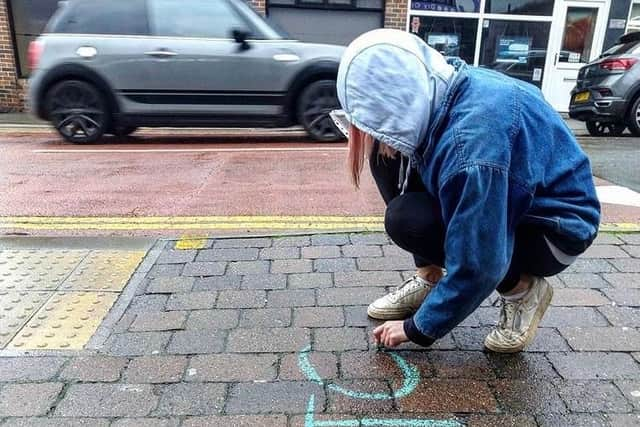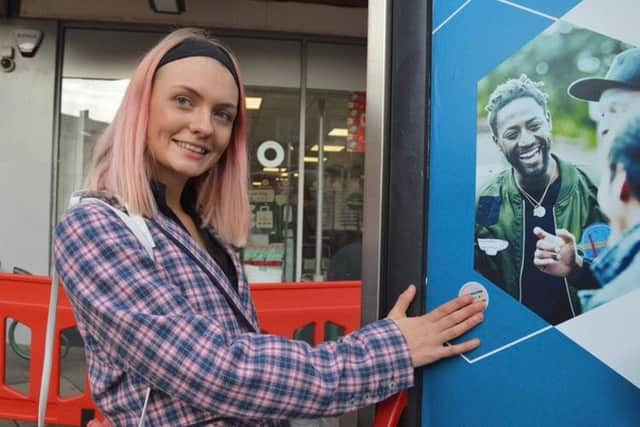COLUMNIST: "Nice legs, but why don’t you smile, you’re be much prettier without that bitch face”
and live on Freeview channel 276
Evie Hairsine, founder of ‘Our Bodies, Our Streets’ and a student at the University of Sheffield had this to say about the growing problem.
Monday: ’Nice legs’ ’Why don’t you smile?’ ‘You’d be sexy if you didn’t have a bitch face’, reverberate in my ears as I run faster along the main road, my ‘bitch face’ progressively hardening after each catcall. Turning up my earphones to the highest volume, I try to block out the voices of the leering and aggressive men, but feel dizzied and disoriented when, without hearing his words, I see a man’s mouth moving fast, addressing me and approaching me on his bike.
Advertisement
Hide AdAdvertisement
Hide AdStartled, I increase my pace and run past him, looking away – only to find him waiting for me, trying to speak to me as I run back along the same path later.


I can sense his anger when I look away and don’t respond. This happens every time. I begin to question whether these streets are mine to use.
Wednesday: ‘You have no self-respect!’ a middle-aged man calls to me from a car as I run in heatwave weather in shorts and a sports bra. Using our bodies to move in clothes that are comfortable signals to these men that we are worthy of abuse.
Saturday: ‘Nice Arse’ ‘Come on, smile for me’ young men shout at me from shops on West Street. I’m not surprised to have been verbally harassed upwards of ten times between 9am and 10am walking through the city centre. I am trying to move between places, to get to work, to exist. I feel like my body is not my own.
Advertisement
Hide AdAdvertisement
Hide AdThis was just a typical week, but my experience is one of billions, varying in severity and impact. Sexual harassment prevents women from using their bodies without shame, fear and self-objectification.


And this is not a problem of the past. Recent months have seen a huge rise in Street
harassment in the UK. A survey by London Activist Farah Benis has recorded a 36 per cent rise in catcalling since the start of lockdown. Joanna Freedman at Tyla explains that the quieter streets have made men more sexually uninhibited, leaving some victims scared to leave the house at all. This is at a time where our ability to nurture our physical and mental health through exercise is more vital than ever.
Another study by Plan International UK of more than 1,000 women aged 14-21 discovered cat calling and even sexual assault has persisted, despite there being less people out and about. It found that young women have experienced more sexual harassment on the streets since strict social distancing measures were introduced, with a fifth reporting that harassment has worsened during lockdown.
Advertisement
Hide AdAdvertisement
Hide AdAdditionally, one in ten said they have received unwanted attention, including insults yelled at them, while another one in ten have endured unwanted sexual attention, sexual or physical contact, or even men indecently exposing themselves to them.


The study found more than a quarter of girls feel less safe outside, in the wake of lockdown. Of these, one in four felt in danger while exercising outside alone and a third felt unsafe while going to the shops alone.
This has served to discourage many from either going out for a walk or doing other forms of exercise outside, with some reporting they have been honked at, stared at repeatedly and catcalled when out running. Like my own experience described at the start of this article, women are being made afraid to get our regular fresh air an exercise and, as we go into winter, this will be even more important to our entire wellbeing.
Respondents to my Instagram surveys report that women often experience harassment from younger men, including fellow student, Nell Attwood, 19, who was ‘spat at by young boys’. Narrow stereotypes about the middle-aged construction worker in a van prevent us from tackling the toxic attitudes within our own social circles. Men at our university need to realise that not only do they personally know the victims of street harassment, but they probably know the perpetrators, and it is also their responsibility to intervene.
In these confusing and worrying times, local journalism is more vital than ever. Thanks to everyone who helps us ask the questions that matter by taking out a subscription or buying a paper. We stand together. Nancy Fielder, editor.
Comment Guidelines
National World encourages reader discussion on our stories. User feedback, insights and back-and-forth exchanges add a rich layer of context to reporting. Please review our Community Guidelines before commenting.